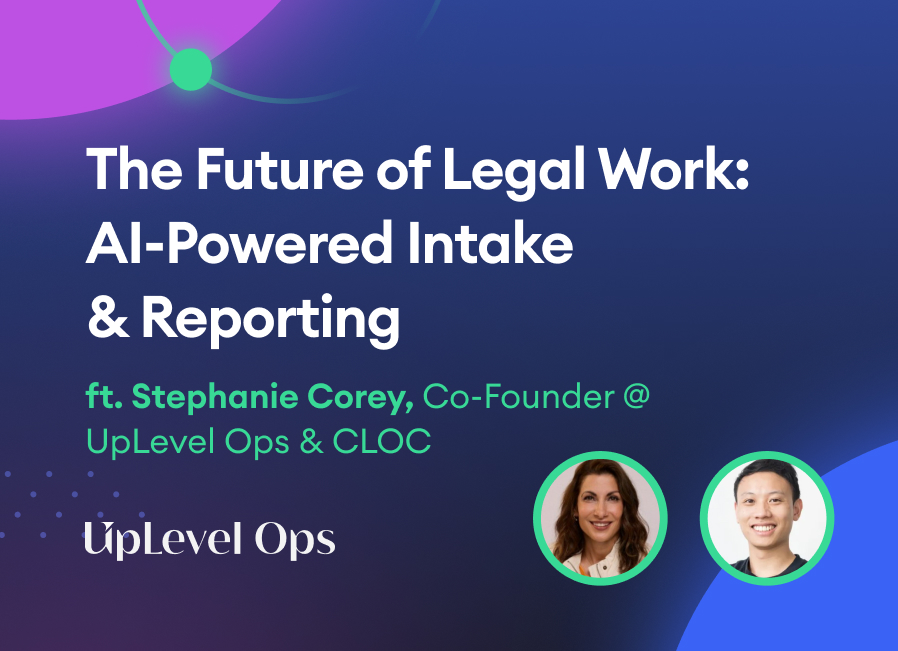Webinar
Jenn McCarron’s Hot Takes on Legal Ops & Aussie Food
We interviewed Jenn McCarron, President of CLOC, on her insightful perspectives on Legal Ops, drawing from her extensive experience building legal ops teams at Netflix, Spotify, and Cisco.
- 00:05 Intro & format setup at CLOC CGI Vegas
- 01:52 Jenn McCarron’s early career path (Tandberg → Cisco)
- 08:17 Aussie snack tasting begins – Fairy bread
- 09:30 Future of Legal Ops; Netflix scale & AI models
- 13:08 Breadth vs depth; redefining legal ops scope
- 16:35 Aussie snack – Vegemite challenge
- 20:33 GenAI impact in CLM (Evisort, “search is over”)
- 22:19 Productivity with Gemini; end of blank documents
- 24:42 Storytelling & data insights; dashboards and rehearsal
- 31:35 Aussie snack – Caramello Koala
- 32:22 Workflow automation first; Netflix case studies
- 39:15 CLM realities; cost and complexity
- 40:37 Aussie snack – Weet-Bix
- 41:55 Aussie snack – Kangaroo jerky
- 43:53 Start/Stop/Continue; tech-first strategy, evolving roles
- 49:06 Aussie snack – Tim Tam (final treat)
See Related

Webinar
44 Minutes

Webinar
44 Minutes
.jpg)
Webinar
51 Min

Webinar
56 Minutes

Webinar
59 Minutes

Webinar
55 Minutes
.jpg)
Webinar
48 Minutes

Webinar
57 Minutes

Webinar
56 Minutes

Webinar
56 Minutes

Webinar
41 Minutes



.jpg)